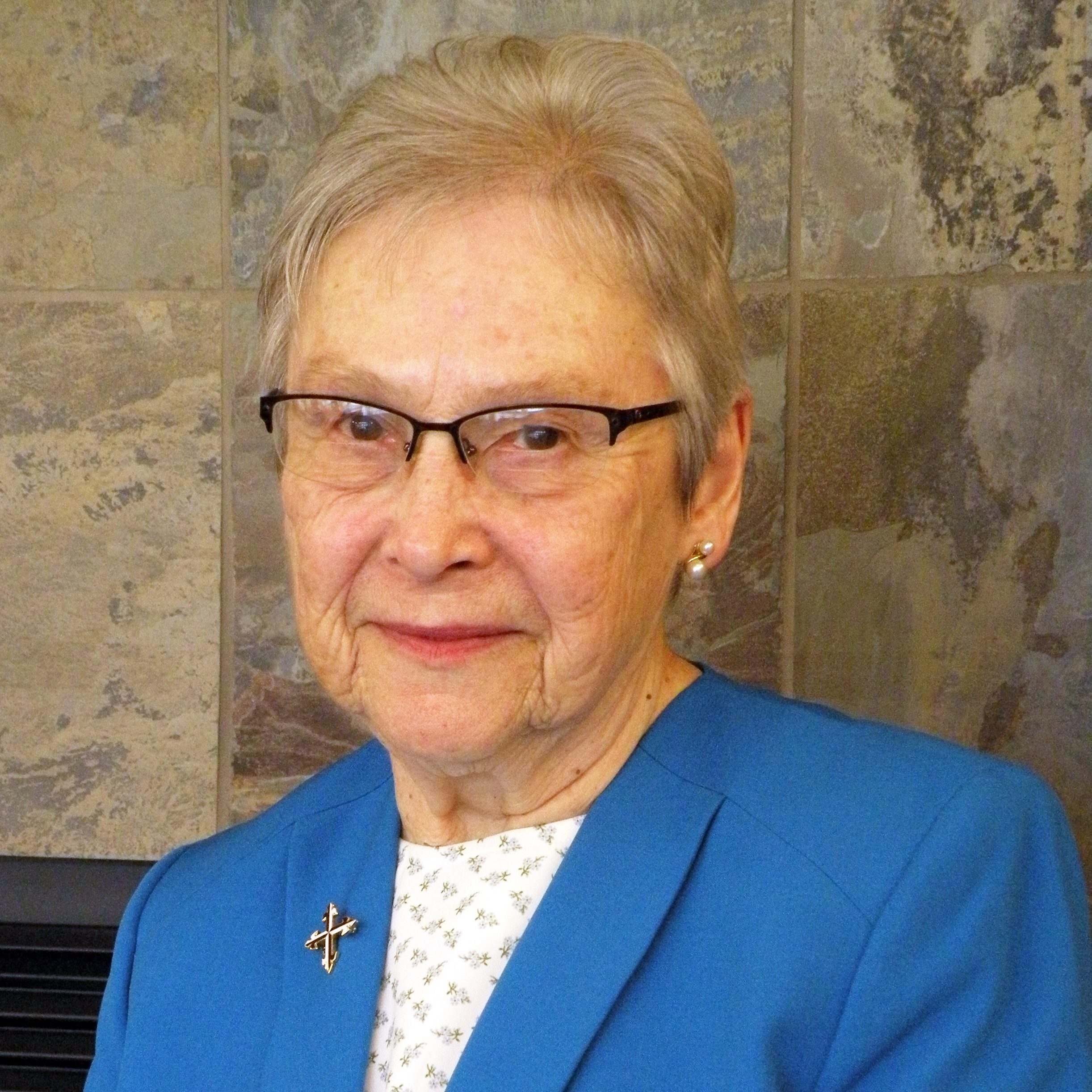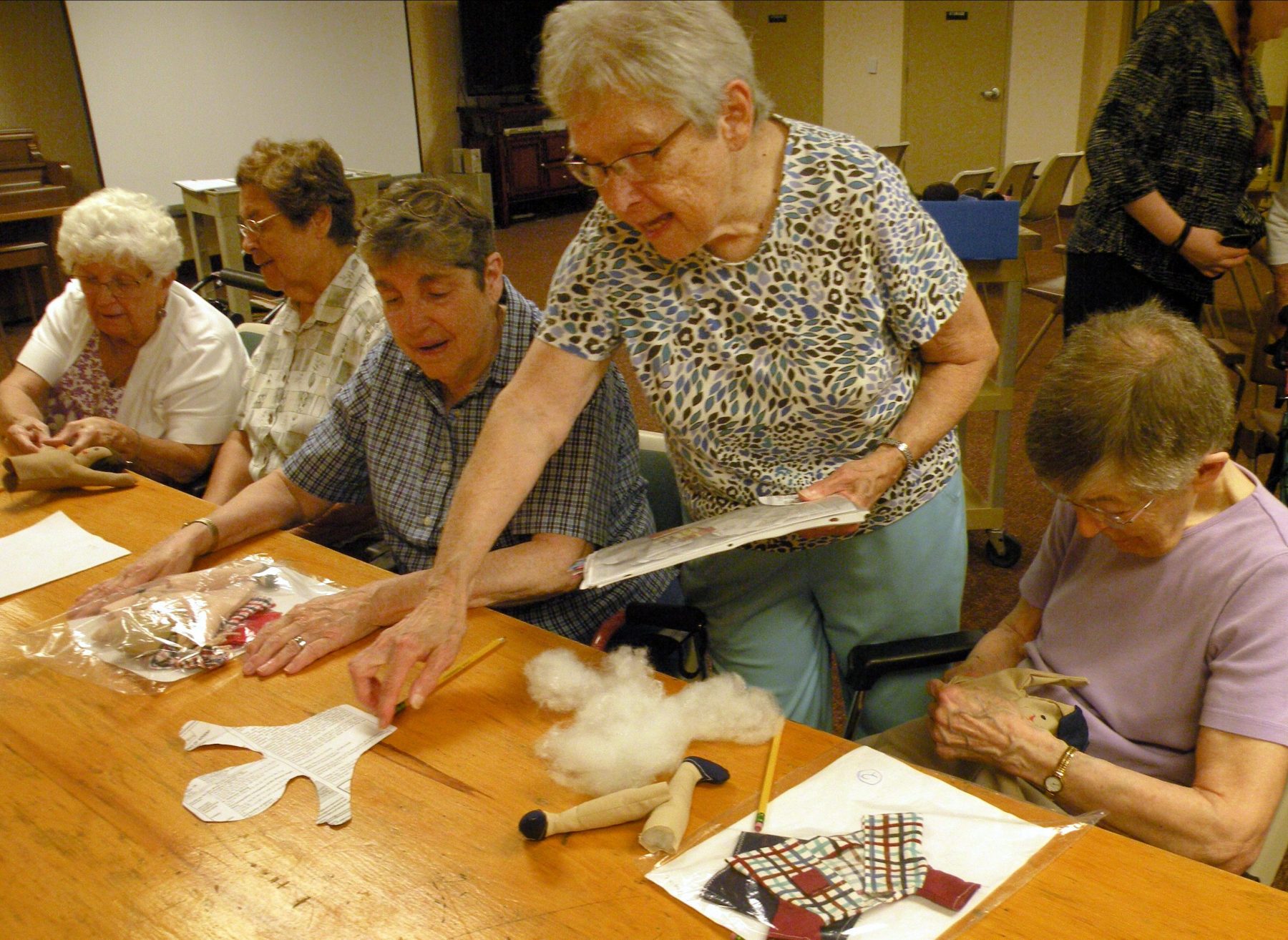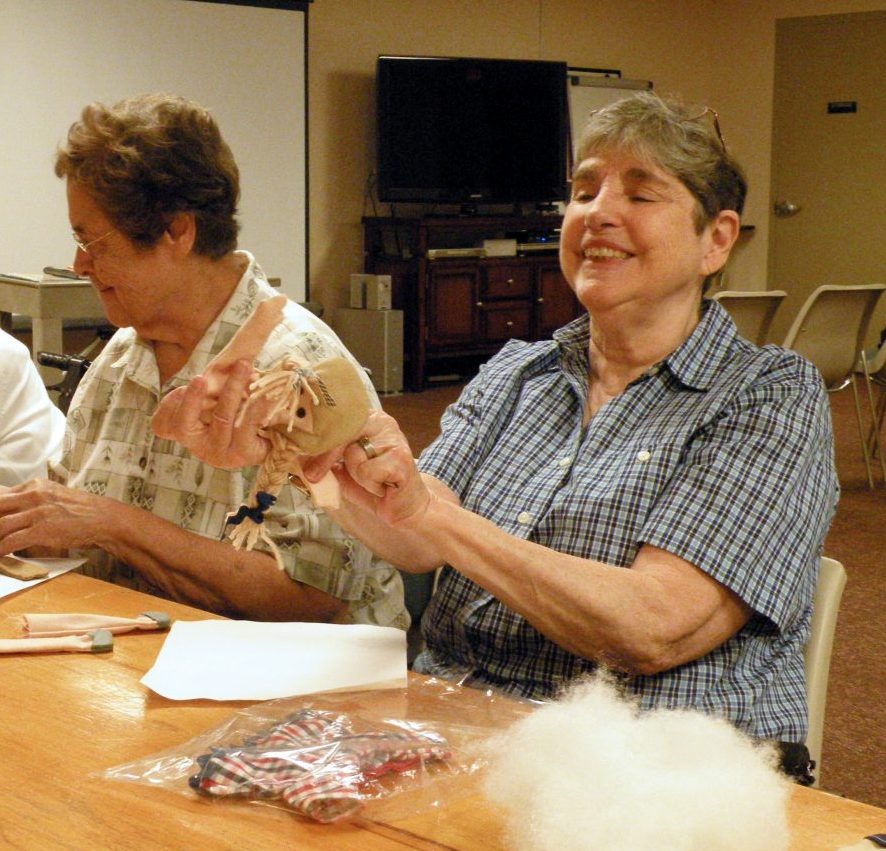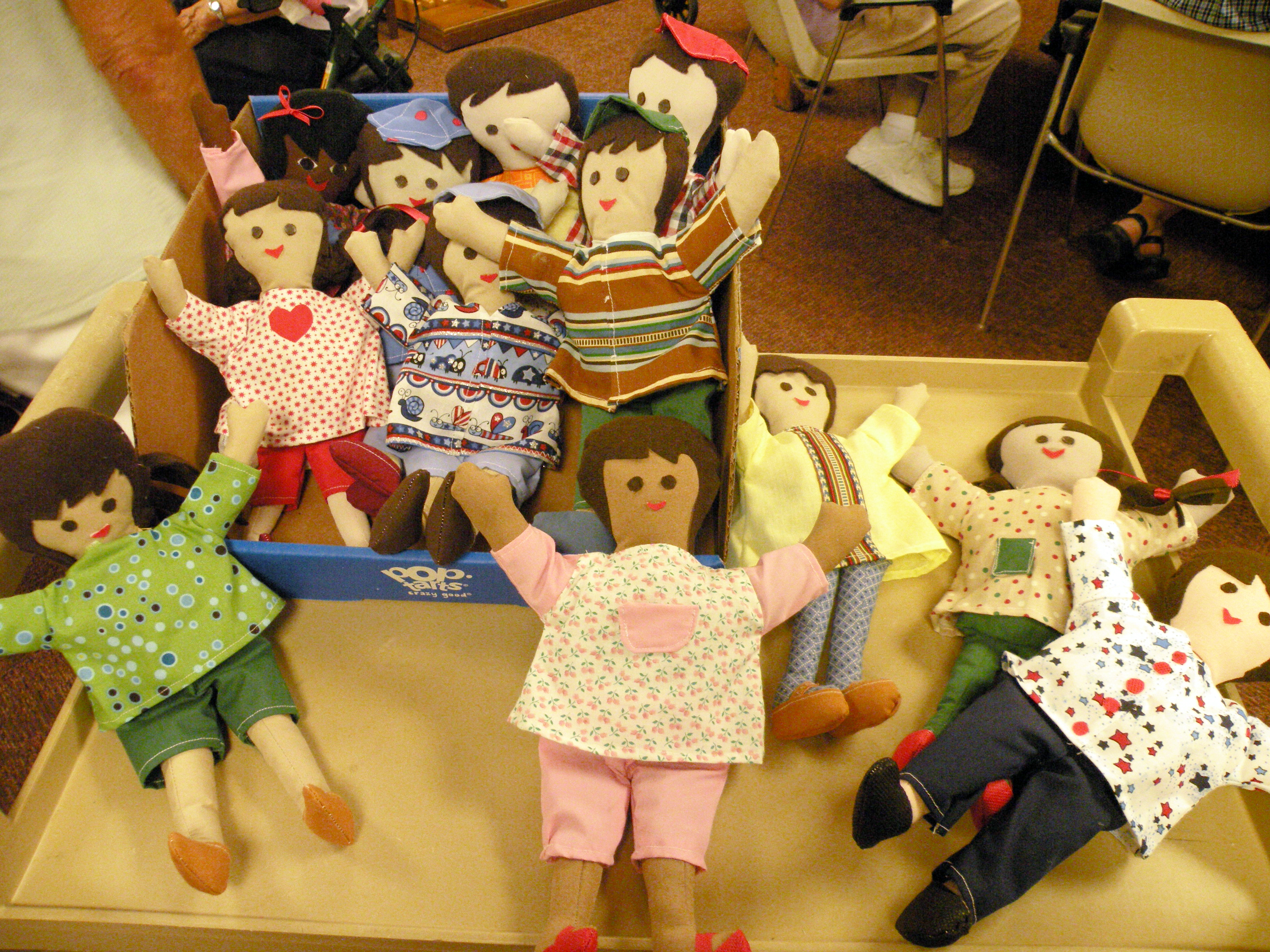

Like so many people, Sister Nancy Malburg was horrified by the news that the children of undocumented migrants and immigrants crossing the border into the United States were being taken away from their parents.
“I couldn’t get the children out of my head, I wanted to do something to comfort them,” said Sr. Nancy.
That something evolved into a service project. She wanted to create tactile, cuddly, playful objects. Modest in all things, Sr. Nancy said: “It wasn’t anything. I used fabric from my stash and just got creative with pattern-making. If I could offer anything, it was the benefit of my creativity; I have plenty of that. And I have these ladies {referring to Sisters] to help.”

Sister Nancy Malburg explains how to stuff the dolls being made to comfort children.
“Bean bags were something that we had at a recent family reunion and everybody, no matter their age, loved them. There were so many little games people could play with others or just pop the bags around themselves like hacky sacks,” said Sr. Nancy. “What an easy item I could make quickly and donate!” She dove into her fabric stash and started measuring, cutting, and sewing. With the help of Sisters from Marywood and Aquinata, 100 bean bags were stuffed with rice. Sister Nancy finished sewing them.
“I started designing a doll, too. I found fabrics to make dolls of all skin colors and hair types, and I started cutting fabric.”
“When I had an opportunity to visit Bethany and speak with Rhonda Fitzsimmons, community engagement coordinator for Bethany Christian Services, I told her that the Dominican Sisters have been working with children and orphans since we came to Grand Rapids and founded St. John’s Home.”
“When I described the bean bags and the dolls we have been working on, Rhonda was thrilled. She told me that they need items like these every day. Many of their first responders carry dolls and other curiosities to share with children being rescued from all kinds of situations. When a child comes to Bethany, most arrive with nothing. Once there, they are given a backpack of their own and it’s filled with necessities and small toys, stuffed animals, dolls.”
“I think Rhonda was most excited about the dolls with diverse skin tones and hair textures.`We have mothers who ask specifically for dolls with black or brown skin. And we know children respond positively to dolls that look like them,’ Rhonda told me.”
On Monday of this week, Sisters from Marywood House and Aquinata Hall gathered to work on a phase of the doll project that Sister Nancy started in July. This Fall, 32 handmade dolls will provide some comfort to children whose lives have been uprooted.

Srs. Ellen Mary Lopez and Lynne Hansen helped craft dolls. “The dolls are something soft, cuddly, something for children who are afraid,” said Sr. Lynne.


